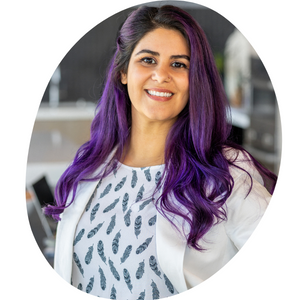Nutritionist Tip: What exactly does a Certified Nutritionist do?
- Aida Sadeghi MS, CNS

- Aug 14, 2021
- 2 min read
Updated: Sep 4, 2021
A Nutritionist’s job is to learn the science of human physiology, anatomy, biochemistry and the interaction of foods, nutrients, supplements, and medications within our bodies and the effects on our health. A Nutritionist presents the material and information to clients in a more easily understood way that can then be realistically incorporated into their daily lives to achieve their personal health goals.
A Nutritionist’s ultimate goal is to get your body the fuel and nutrition it needs through natural whole foods. This is not always achievable, everyone’s body works differently and everyone has unique health related obstacles. Occasionally a Nutritionist will recommend specific supplements to help bridge any gap in vitamins your body is needing and unable to get from your foods. A good Nutritionist will only suggest these supplements as a last resort.
Nutrition needs can vary greatly considering a few different factors. Each stage of life requires a different approach to nutrition, child nutrition differs greatly from elderly nutrition. As we grow and change our body needs different things. Nutrition therapy needs will be vastly different for various medical conditions (Diabetes, Kidney Disease, IBD and on ). An athlete’s body will have a different set of demands on their body, requiring a unique approach.
Nutrition therapy is a large field that can be applied to many different aspects of life, whether it be for athletic performance, disease management, weight loss, weight gain, general health or many other health goals. It is important to select a Nutritionist with the right qualifications and educational background. A Certified Nutrition Specialist (CNS), will have the education to help navigate this large field and determine the best approach for your health journey.
In many states, nutritionists aren’t legally required to undergo any sort of training; you can read a book or take a 6-week course and call yourself a nutritionist. It is important to remember that nutrition is a science and the foods, nutrients, supplements and chemicals you put into your body have a direct impact on your health. You deserve someone that is educated and knowledgeable in the field to guide you in what is safe and what to avoid. You deserve a Certified Nutrition Specialist.
CNS exams are administered by the Board for Certification of Nutrition Specialists. While there are many different certifications for health coaches, wellness coaches, nutritionists, the CNS credential may be the only that is comparable to the Registered Dietitian (RD/ RDN) credential, accredited by the National Commission for Certifying Agencies (NCAA) and the most recognized non-dietetics credential. Unlike many “overnight” nutrition certificates, the CNS credential requires a Master’s degree in the field of nutrition science with coursework covering a variety of nutrition topics as well as physiology, anatomy, biochemistry, microbiology and a few others. Upon degree completion, the Board also requires 1,000 hours of practical experience in the field of nutrition. Lastly, taking and passing the CNS exam will finally lead you to obtain your CNS credential award.
Aida Sadeghi,MS,CNS
Interested in learning more about Nutrition Counseling?




Comments